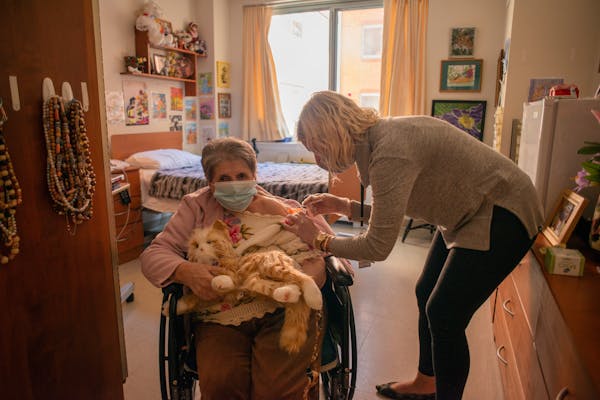Thursday was the last day of the U.S. federal public health emergency in response to the spread of COVID-19, another big step in the slow shift back to normalcy after a pandemic that exceeded three years and forced major worldwide disruptions.
The end of the federal emergency means changes for hospitals and how they interact with COVID sufferers. Here are four things expected to change:
- Many health plans will continue to fully cover COVID vaccinations, but patients are likely to lose access to free at-home COVID-19 tests while also experiencing new or increased co-pays for COVID treatment.
- Small, rural critical-access hospitals are losing flexibility around the ability to increase bed capacities and keep patients checked in for longer. Joe Schindler, a vice president at the Minnesota Hospital Association, previously said that made small hospitals more effective in treating serious illnesses with aid from video consults by specialists — thus easing a bed crunch in urban hospitals.
- Hospitals are also pushing against the reinstatement of an old rule that required Medicare patients to be admitted for at least three days before they could be transferred to nursing facilities.
- A 20% rate increase in Medicare payments for hospital treatment of COVID-19 is lifting, though Schindler said the switch won't hurt hospitals too much because the number of patients with COVID-19 has declined.
More from Star Tribune
More from Star Tribune
More from Star Tribune
More from Star Tribune
More from Star Tribune
More from Star Tribune
More from Star Tribune
More From Star Tribune
More From Local

How Minnesota House Republicans ended the DFL's state government trifecta
Republicans across the country benefited from favorable tailwinds as President-elect Donald Trump resoundingly defeated Democrat Kamala Harris. But that wasn't the whole story in Minnesota.
Local
Project 2025 platform proposal aims to allow mining in Boundary Waters watershed
The proposal suggests removing the 20-year protection on the Superior National Forest that President Joe Biden's administration had ordered in 2023.

Ann Johnson Stewart wins special election, giving DFL control of Minnesota Senate
Western Twin Cities suburban candidates Johnson Stewart and Republican Kathleen Fowke were the only Senate candidates on the ballot.

Democratic U.S. Sen. Amy Klobuchar defeats GOP challenger Royce White
Klobuchar won her fourth six-year term in the U.S. Senate.

Gov. Tim Walz will return to Minnesota after Trump victory blocks him from becoming vice president
Walz's attempt to join Hubert Humphrey and Walter Mondale as the only Minnesotans to ascend to the vice presidency was unsuccessful.
